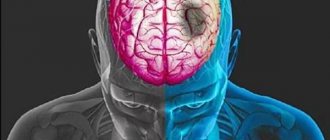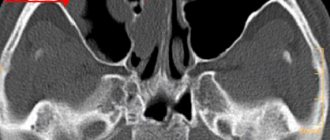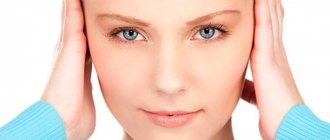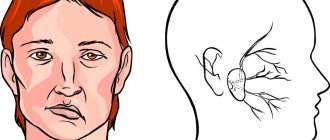How pressure reacts to anxiety
Stressful situations happen in everyone's life. With increased stimulation, the body immediately begins to react, which is manifested by a number of symptoms. Everyone reacts differently to events, and under the same circumstances, one person may be very worried, while another may not show signs of nervous tension.
Can blood pressure increase due to anxiety? Every doctor will answer this question in the affirmative. Stressful situations are considered one of the most common causes of high blood pressure. Even the slightest increase in anxiety in people with unstable mental health can cause a slight deviation. Blood pressure increases in the following situations:
- during public speaking;
- in the process of waiting for events that are important for a given person;
- in communication with strangers;
- conflicts;
- stressful situations.
Deviation from the norm can be determined by the heart rate, which at this moment becomes rapid. An increase in pressure due to excitement is often accompanied by clear symptoms in the form of sweating, redness of the skin, nausea, and a person is often bothered by headaches.
A situation is considered normal when such a phenomenon is observed during a period of nervous excitement, and the indicators return to normal after eliminating the causes of anxiety, calming the person.
Otherwise, you need to worry and consult a doctor to prescribe a course of treatment, since a deviation of up to 10 points indicates a negative impact on all vital systems.
- What is stress?
- Increased blood pressure in response to stress as an adaptation
- Increased blood pressure due to chronic stress or failure to adapt
- How to correctly assess your blood pressure level during stress?
What is stress?
According to the classical definition, stress in medicine is a nonspecific reaction of the body that occurs as a response to various physical factors and strong emotions (stressors) that threaten to disrupt the stable state of the body, and leads to characteristic changes in the nervous and endocrine systems.
It is widely believed that stress is always bad for a person. But in fact, stress performs the most important protective and adaptive function, it triggers processes that allow you to survive a stressful situation with the least losses and emerge victorious. Only repeated, chronic stress poses a real danger [1].
This difference is clearly visible if we consider the effect of stress on blood pressure as an example.
Increased blood pressure in response to stress as an adaptation
Consider the classic situation where a person needs to publicly present and then discuss a project with colleagues.
The feeling of excitement and emotional tension increases, and the body reacts to this by releasing many hormones. Adrenaline, norepinephrine and cortisol lead to increased heart rate, increased blood pressure, increased blood flow speed, and increased blood glucose levels. Such changes lead to an improvement in the blood supply to the brain, it absorbs an increased amount of glucose and oxygen from the blood, concentration and concentration increases, the reaction speed increases, which means that the person becomes as collected as possible and ready to answer any question [2]. In this case, in a healthy person, the pressure will be within acceptable limits, not higher than 140/90.
After some time, the discussion of the project ends, the stress factor disappears and the body returns to its original state. Within a few hours, the heart rate decreases and blood pressure normalizes [3]. Thus, with the help of stress, the body successfully adapted to the situation and then returned to a stable state (homeostasis).
Such a short-term increase in pressure can only be harmful if a person suffers from hypertension or other chronic diseases.
Increased blood pressure due to chronic stress or failure to adapt
Let’s assume that the same person has a “dark” streak in his life. First, the child got into trouble at school and had to go to the principal, then an icicle fell on the car and broke through the roof, and then the neighbors flooded the apartment. Because of this, he was late for work the next day, receiving a scolding from his superiors. A day later, his previously approved project was canceled due to lack of funding, and he was transferred to remote work due to the pandemic, depriving him of the opportunity to see his beloved colleagues live.
This series of stressful effects did not allow the body to fully recover, which led to a chronic increase in the level of cortisol, corticosterone and mineralcorticoid hormones in the blood, and these hormones, in turn, contributed to the maintenance of high blood pressure for a long time [5, 7]. As a result, adaptation failed, the body began to consider constantly elevated blood pressure as the norm, and baroceptors responsible for regulating pressure and various body systems responsible for homeostasis adapted to this level [4]. A step was taken towards the development of hypertension.
It is these people who often turn to therapists with complaints like “the pressure is jumping from the nerves” or “they constantly have a headache at work.” After all, any additional stress factor will cause a further increase in the already elevated level of blood pressure, leading to the development of unpleasant symptoms and the risk of a hypertensive crisis [9].
How to correctly assess your blood pressure level during stress?
It is best to measure blood pressure using an accurate automatic blood pressure monitor while sitting, after resting for 10-15 minutes.
During a stressful event and 2-4 hours after it, elevated blood pressure readings may be recorded [9]. However, if a person does not experience severe discomfort, and the numbers do not exceed 140-150 units of systolic (“upper”) pressure and 100 units of diastolic (“lower”) pressure, then this condition can be classified as a normal variant during adaptation to stress.
If the pressure remains high for more than 6 hours, symptoms such as headache, dizziness, tinnitus, blurred vision, nausea are observed, it makes sense to call an ambulance or consult a doctor. Also, a reason to consult a doctor may be persistently elevated blood pressure for several days or the appearance of similar symptoms during any emotional experiences [8].
It is best to monitor your condition using an observation diary, briefly describing what exactly led to the increase in pressure, to what level it rose and what the symptoms were. Such a diary will greatly help the specialist to choose and prescribe the correct treatment. It is most convenient to keep such a diary when the tonometer has a memory function and remembers the results of the latest measurements.
1. Bobkov A.I., Reshetnyak D.V., Nikushkin E.V. About compensated and decompensated hormonal and biochemical disorders during clinical stress // Klin. lab. diag. – 2009. – No. 9. – P. 42–43 2. Buijs, R. M., & Van Eden, C. G. (2000). The integration of stress by the hypothalamus, amygdala and prefrontal cortex: balance between the autonomic nervous system and the neuroendocrine system. Cognition, Emotion and 3. Autonomic Responses: The Integrative Role of the Prefrontal Cortex and Limbic Structures, 117–132. 4. Yaribeygi, H., Panahi, Y., Sahraei, H., Johnston, T. P., & Sahebkar, A. (2017). The impact of stress on body function: A review. EXCLI journal, 16, 1057–1072. 5. McEwen BS (2006). Protective and damaging effects of stress mediators: central role of the brain. Dialogues in clinical neuroscience, 8(4), 367–381. 6. Ostroumova, O.D., & Kochetkov, A.I. (2018). Worksite hypertension as a model of stress-induced arterial hypertension. Terapevticheskii arkhiv, 90(9), 123–132. 7. Strizhakov, LA, Babanov, SA, Lebedeva, MV, Moiseev, SV, & Fomin, VV (2018). Arterial hypertension at the workplace: risk factors and the population value. Terapevticheskii arkhiv, 90(9), 138–143. 8. Antonov, E. V., Markel', A. L., & Yakobson, G. S. (2011). Aldosterone and stress-dependent arterial hypertension. Bulletin of experimental biology and medicine, 152(2), 188–191. 9. Akagi, S., Matsubara, H., Nakamura, K., & Ito, H. (2018). Modern treatment to reduce pulmonary arterial pressure in pulmonary arterial hypertension. Journal of cardiology, 72(6), 466–472. 10. Heine, H., & Weiss, M. (1987). Life stress and hypertension. European heart journal, 8 Suppl B, 45–55.
Author
Kasabov K.A.,
Lecturer at the First Moscow State Medical University named after I.M. Sechenov, researcher at the Research Institute of Pharmacology named after. V.V. Zakusova.
blood pressurehuman blood pressure increasedsevere stressreduce pressurestress causeanxiety feelingperson stress
Share this article with your friends
The impact of stressful situations and nervous excitability on blood pressure
Increased blood pressure during stress is easily explained from a physiological point of view. The body perceives the situation as dangerous, and immediate action must be taken. During periods of anxiety and at times of strong feelings, hormonal levels change, nerve impulses in the brain indicate the need to speed up the work of the heart muscle in order to speed up blood flow. A sharp increase in hormonal activity increases heart rate, narrows the lumen of the arteries, and reduces the elasticity of their walls, which contributes to increased blood pressure.
When a person cannot control their nerves, the effects on the blood vessels and heart remain constant, further aggravating the situation. Provoking factors are smoking and drinking alcohol, constant lack of sleep, which increases the negative impact and stress.
The danger is that if a person is constantly in a state of stress, then the work of all organs is imposed on him, literally consuming them.
The nervous system cannot return to normal on its own, so medications are often required.
Nervous hypertension
Increased pressure on the nerves is a separate category of causes of pathological changes. According to statistics, 68% of cases of hypertension develop against a nervous background, when a person cannot control his emotions.
Often hypertension is not nervous, patients are subject to excessive responsibility, emotional, and tend to worry about any reason. This pathology often develops in leaders, rebellious and emotional people who need to contain and contain their emotions within themselves. In any case, internal stress will sooner or later be reflected on the physical level in the form of hypertension.
Nervous hypertension is divided into two types:
- primary - not associated with diseases of the internal organs and is characterized by a constant excess of the pressure value in relation to the norm;
- Secondary - develops as a result of pathological changes in vital systems.
Primary hypertension is characterized by an unstable increase in blood pressure, which may increase slightly. Occasional headaches, palpitations and painful discomfort in the back of the head may occur. In more severe forms, high blood pressure interferes with a person's normal functioning and is often accompanied by dizziness, numbness of the limbs and a rush of blood. A patient with this diagnosis gets tired quickly and has difficulty falling asleep.
Stress and hypertension: a psychologist's view
Home — For the public
- Map of medical organizations
- Vaccination
- Clinical examination
- Fluorography
- Addresses and opening hours of clinics
- Emergency rooms
- Oncology
- Where to take an HIV test
- Healthy child's office
- Services
- Prevention of CVD
- Disease Prevention
- World Patient Safety Day
- Newspaper "Medical News"
- specialist
- School of Health
— Disease prevention
- HIV infection
- All about vaccination
- All about proper nutrition
- Hepatitis
- Flu
- Dementia
- Schoolchildren's health
- STD
- Tick-borne encephalitis
- Whooping cough
- Measles
- Legionellosis
- Meningococcal infection
- Oncology
- Acute intestinal infection
- Pediculosis
- First aid
- Pneumococcal infection
- Pneumonia
- Prevention of rabies
- Dependency Prevention
- Rotavirus infection
- Diabetes
- Cardiovascular diseases
- Injuries
- Tuberculosis
- Tularemia
- Physical activity
- Obstructive pulmonary disease
- Exotic infections
- Ecology
- Why is swimming in ponds dangerous?
— Cardiovascular diseases — Blood pressure and stress: a psychologist’s view
In 1935, the American physician and psychoanalyst Helen Flanders Dunbar’s book “Emotions and Somatic Changes” was published, in which she sought to show the connection between personality characteristics and physical diseases: thus, in her opinion, the hypertensive personality type is characterized by:
- increased anger, intolerance, irritability;
- strong internal tension
- strong involvement in work, the ability to struggle for a long time to achieve a goal even with significant resistance from the outside;
- a pronounced need for approval from others, especially authority figures or leaders;
- ambition, need for competition;
- excessive responsibility, perfectionism.
In 1959, American cardiologists R. Rosenman and M. Friedman described and called the behavior of this type of personality “type A behavior,” adding to Dunbar’s theory: a person with “type A” behavior is often dissatisfied with himself and is strict with himself. Such people often do not pay attention to their ailments; if necessary, they work even when they feel unwell. They are characterized by excessive tension in the facial muscles, haste, “explosive” speech, a constant feeling of lack of time, “exhaustive” activities, and inability to rest.
In the early 70s, M. Friedman and R. Rosenman obtained evidence that type A behavior is a risk factor for diseases such as myocardial infarction and angina.
Stress researchers offer tips to help Type A types allocate their resources more realistically and achieve balance in their lives.
- Learn to put off solving problems until you are able to cope with them: people prone to stress often cannot distract themselves, continuing to revolve in a circle of problems, worrying about unlikely opportunities, not solving the problem, but only aggravating their condition.
- Learn to relax to give your body and mind a break from physical and psychological stress: replace intense physical exercise with calm, relaxing exercises.
- Develop the ability to see the events of your life as a whole, without losing a broad perspective or getting bogged down in the small details of a situation.
- Manage the development of stressful situations by implementing realistic planning; Don't get lost when problems arise. Be prepared to face difficulties, do not run away from difficulties.
- Know your limits and don't allow yourself to overexert yourself. A certain level of exercise is beneficial and stimulating, but excess exercise is risky for health.
- Be in touch with your feelings, be able to understand and accept them.
- Many people who are greatly affected by stress spend much of their energy worrying about what others think.
- Remember, “Murphy’s Laws”: if there is a possibility that some kind of trouble can happen, then it will definitely happen. Don't lose your sense of humor and common sense.
- Maintain a balanced attitude towards different areas of life: work, hobbies, family.
The difference between hypertension and a temporary increase in pressure
Hypertension is characterized by a gradual course of the disease. The first forms of the disease may be asymptomatic, and a person may not suspect the presence of problems for a long time and may not know that blood pressure is elevated. This stage is called “soft” and is characterized by a variation of 160/100.
A transient increase in pressure occurs sporadically, does not persist and decreases with the exclusion of provoking factors. It is easily corrected with medications; often, to normalize the condition, a person just needs to calm down and rest.
Persistent arterial hypertension has been observed for a long time.
After a stressful situation, there is a sharp increase in performance. If you take 3 measurements within 30 minutes that show no improvement and show that the situation is getting worse, you should take immediate action.
What to do to be less nervous
Doctors recommend increasing the level of stress resistance in hypersensitive people who are prone to constant unreasonable anxiety. This can be done through special training or consultation with specialists such as a neurologist or psychotherapist. Such people are well influenced by pharmacotherapy and physiotherapy, which help normalize the functioning of the nervous system.
People prone to nervous excitability can resort to the following recommendations.
- You should not plan several important things for one day;
- Learn to focus on what is important and not worry about the little things;
- Plan your day in advance, leaving enough time for unforeseen situations;
- Learn to prioritize, take your time, and understand that 10 minutes won't solve anything in most cases.
In order not to get nervous, it is important to learn to calm down and keep your emotions under control. Such techniques are obtained through relaxation and hypnosis sessions. The latter help to reveal the true causes of human anxiety, which are often hidden deep in the human mind.
Treatment methods
Today there are many methods that can be used to treat and normalize blood pressure. Pharmacological treatment plays an important role; methods of traditional medicine and physiotherapy are used as a supplement. The list of drugs on the pharmacological market is represented by a large assortment, but they cannot be prescribed independently. The course of therapy should be determined by the attending physician based on the results of medical examinations.
Medicines
The doctor gives recommendations on the use of drugs and their dosage. In the first stages of treatment, antihypertensive drugs are not prescribed; recommendations are limited to strengthening the immune and nervous systems, getting more rest and sleep. In the second stage of pathological changes, the use of beta-blockers is indicated.
At the third stage, a complex of antihypertensive drugs may be prescribed. In most cases a combination is used:
- beta-blockers and diuretics;
- ACE inhibitors and calcium antagonists.
If the increase in blood pressure is one-time and caused by stress, taking medications with antihypertensive effects requires a careful approach. Taking the drug can cause a sharp drop in blood pressure, fainting, and hypotensive crisis.
Therapy
The difficulty of therapy is that it is often difficult to determine how a person’s emotional state affects blood pressure. Patients often associate deterioration in well-being with excessive fatigue and poor quality of sleep, meaning already advanced forms of arterial hypertension. To exclude difficult situations, doctors recommend constant monitoring of blood pressure readings.
Traditional therapy has the following goals:
- stopping the process of destruction of blood vessels, preventing possible complications;
- normalization of mental state;
- stabilization of blood pressure.
A good therapeutic effect in combination with medications is shown by physical procedures such as massage and acupuncture, which are used only as prescribed by a doctor.
Folk remedies
In order to normalize the mental state, traditional healers recommend taking herbal infusions and tinctures. A good calming effect can be observed when using sedatives such as thyme, peony, and valerian root.
A good effect of lowering blood pressure is observed when taking chokeberry. For preventive purposes, it is recommended to eat 15 berries per day. For treatment, you need to drink blueberry juice for 15 days.
Medications for blood pressure and anxiety
You can cope with nervous hypertension using the following groups of medications:
- Beta blockers. It is possible to restore blood pressure by lowering heart rate, which has a depressing effect on the functioning of the central nervous system.
- Alpha blockers. Drugs in this group help cope with vascular spasm and lower blood pressure.
- Diuretics. It is possible to achieve lower blood pressure by reducing blood flow in the kidneys. This is how the body cleanses itself of excess fluid.
- ACE inhibitors. It is possible to lower blood pressure by dilating blood vessels. The drugs have a positive effect on the condition of the kidneys, so even people with diabetes can take them. Most often, a course of therapy is prescribed by taking medications of one group, and in the absence of a positive result, drugs belonging to another group are selected. An increase in blood pressure due to nervousness requires strict adherence to the prescribed dosage of drugs. Otherwise, the treatment will not bring the desired effect.
- Calcium channel blockers. Medicines cause an inhibitory effect on calcium flow, which significantly slows down the removal of the trace element from the body.
Adaptogens in the fight against stress
In a situation where your blood pressure rises due to anxiety, you need to ask your doctor what to do in such cases. If indicated, medications called adaptogens may be prescribed.
Such general tonics are mainly prescribed to those patients who, due to their professional activities, constantly face stress. These types of medications help improve performance and sleep.
In small dosages, the drugs help to relax and reduce the level of excitability. In average doses, adaptogens cause a surge of strength, give vigor and create a pronounced emotional uplift.
Extracts of ginseng and leuzea, eleutherococcus and lemongrass seeds have a similar effect.
Complications that may occur
A sudden increase in pressure due to excessive stimulation can lead to a hypertensive crisis, which requires urgent hospitalization of the patient. A critical situation occurs when the pressure reaches 210/120. The danger of this situation is associated with the appearance of the following diseases in the body:
- swelling of the airways;
- blows;
- myocardial infarction;
- Cardiac muscle rhythm disturbances.
If symptoms are not relieved in a timely manner, a person may face death. Constant overload of the circulatory system is fraught with many diseases, including failure of the heart muscle, kidneys and liver, and the effect of pressure on the functioning of vital systems can be irreversible.
Prevention of nervous hypertension
Basic preventive measures should be aimed at eliminating the circumstances that provoke increased blood pressure and normalizing the activity of the nervous system. To solve the first problem, it is recommended to learn methods of emotional control and relaxation. After a hard day at work or stress, doctors recommend a mandatory bath, which will wash away all negative emotions from us.
A balanced diet with sufficient minerals and vitamins is essential to keep the body in good shape.
If there is not enough fresh fruit during the cold season, you should turn to vitamin complexes. Fatty, salty and smoked foods and foods with a large amount of preservatives should be excluded from the diet. You should limit your consumption of coffee, strong tea, and blood pressure monitors.
Walking in the fresh air is recommended for people with high blood pressure. Swimming and yoga are very effective. Any physical activity should be dosed and selected taking into account the severity of the disease and the patient’s condition.
How to return the pressure to normal?
The main thing when a panic attack is approaching is not to panic. Various types of relaxation, physical exercises, breathing exercises, and yoga can help with this.
In addition, solving complex logical problems, reading poetry, and viewing colorful publications will help prevent pressure surges. It is also recommended to have a phone with the numbers of family and friends on hand, as this will help you feel more confident and relaxed in an unfamiliar environment, a stressful situation, or during a panic attack. To prevent pressure surges and panic attacks, contact an experienced doctor I.G. Gernet - the best psychotherapist in Moscow and beyond.
To the list of articles
Other articles
- Symptoms of a panic attack with VSD
- Is obsessive thought neurosis curable?











